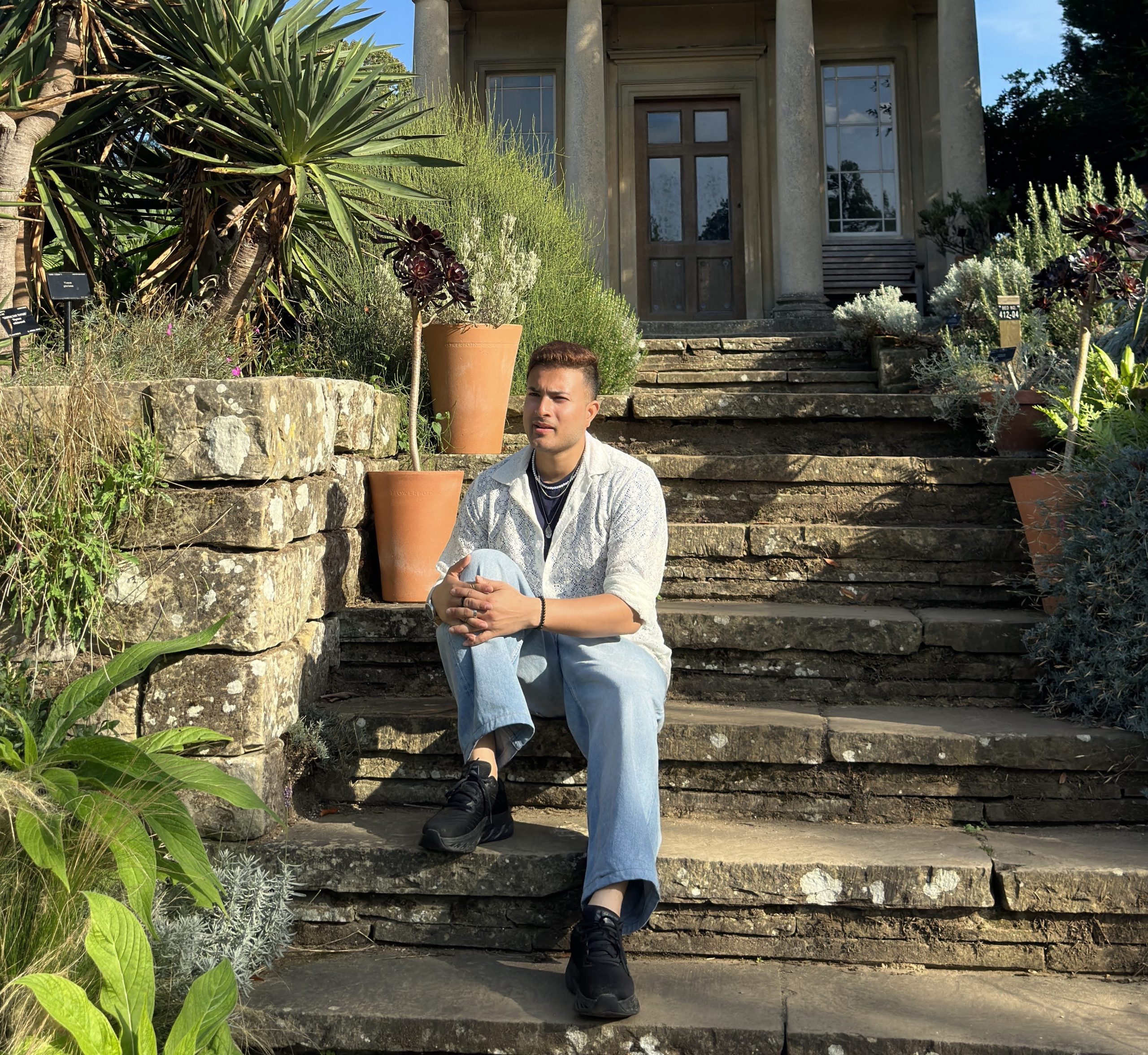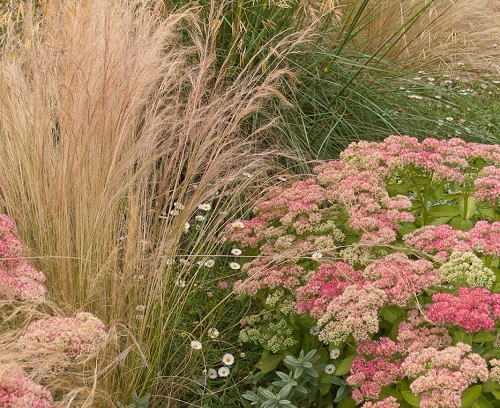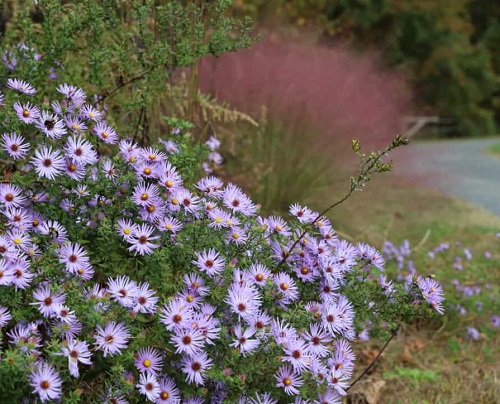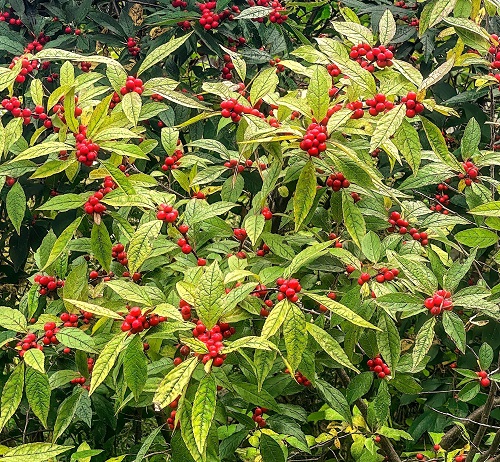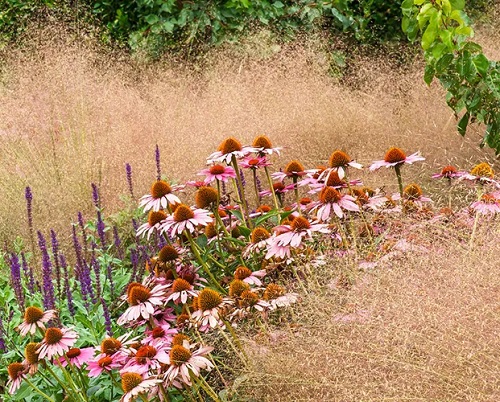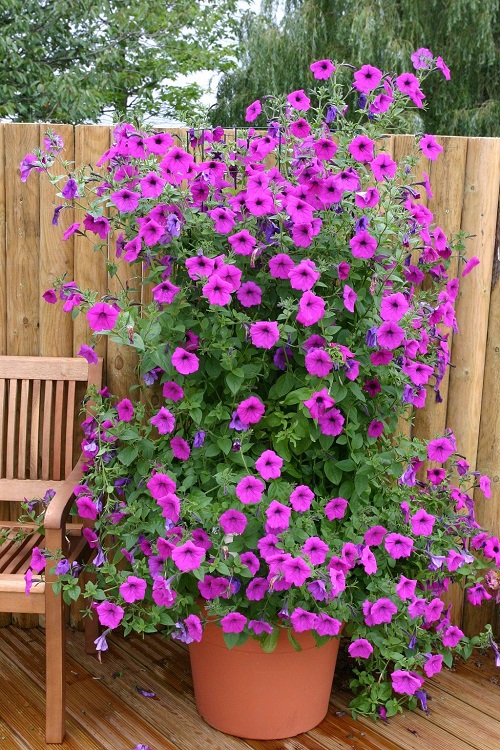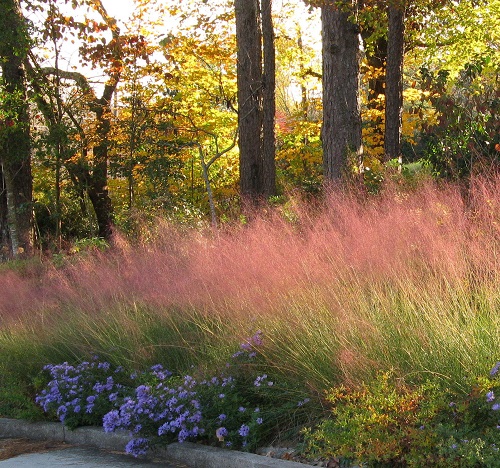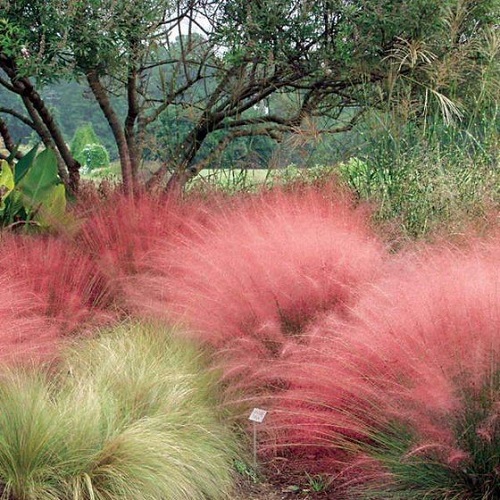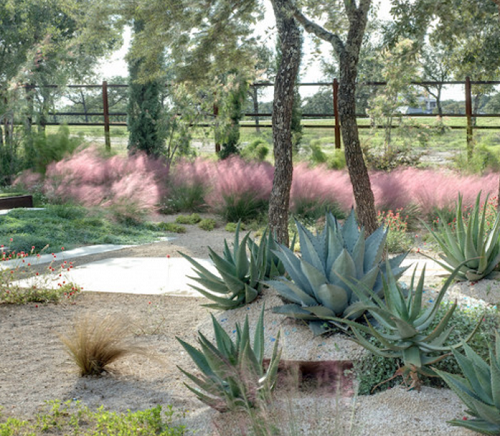Pink Muhly Grass Companion Plants not only complement its look but also help it grow better. Here are the best ones!
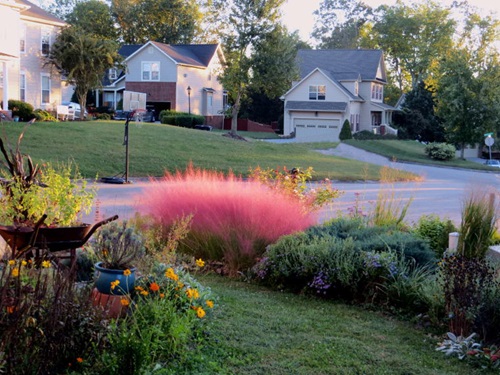
Muhlenbergia capillaries (Pink muhly grass) thrive in a well-lit, arid environment and enjoy the company of plants that have a similar growing requirement. This article will share with you the best ones that you must grow with it in your garden!
Pink Muhly Grass Companion Plant
1. Sedum
Botanical Name: Stonecrop
It offers a different foliage shape and color that contrasts well with the finely textured Pink Muhly Grass, making the view more beautiful by blooming at the same time – late summer to fall.
2. Aronia
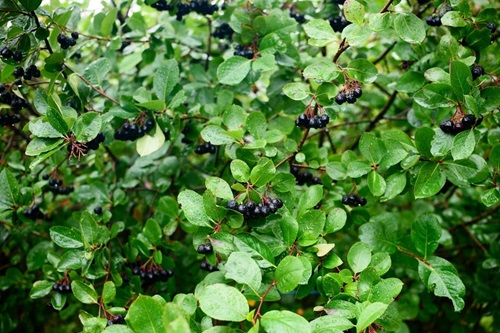
Botanical Name: Aronia
Aronia has several benefits when grown with Pink Muhly Grass, such as attracting pollinators, warding off harmful pests, and providing extra shelter. You should definitely grow them together.
3. Spotted Bee Balm
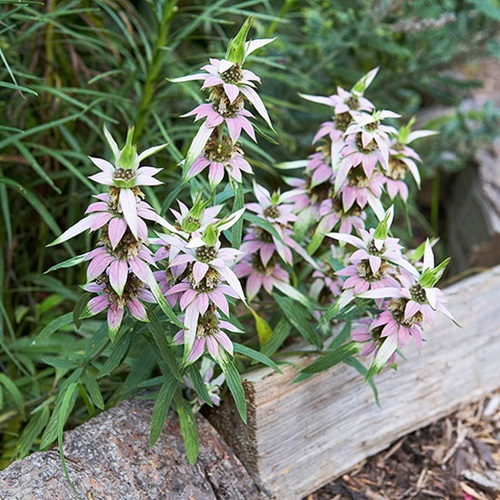
Botanical Name: Monarda punctata
Belonging to the mint family, it flourishes well alongside Pink Muhly Grass. Their shared preference for full sun and dry soil makes them compatible garden mates.
4. New England Aster
Botanical Name: Symphyotrichum novae-angliae
It is known for its vibrant pinkish-purple flowers, when paired with Pink Muhly Grass, it offers a stunning color palette. Both plants bloom in the fall and give a late-season color burst.
5. Aromatic Aster
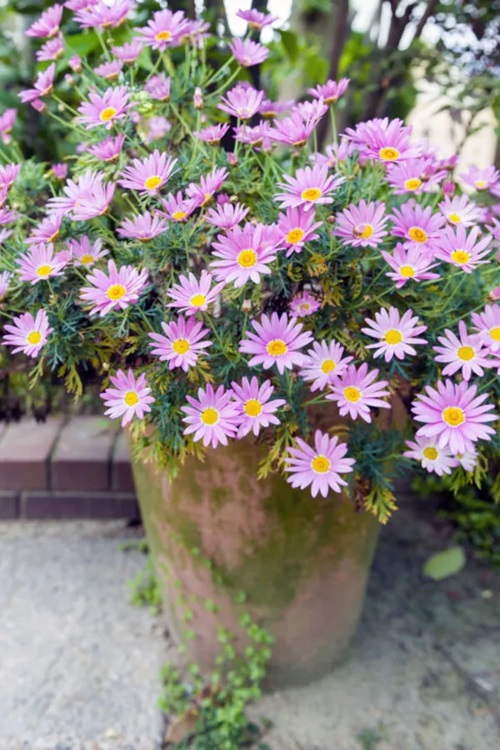
Botanical Name: Symphyotrichum oblongifolium
This native wildflower features purple-blue flowers and is an excellent companion. This combination not only adds color variety but also introduces a pleasant fragrance to the garden.
Check out the best celosia companion plants
6. Winterberry Holly
Botanical Name: Ilex verticillata
Known for its bright red berries and robust green leaves in winter, this plant is both pest and drought-resistant, making it an ideal year-round companion for Pink Muhly Grass.
7. Smooth Blue Aster
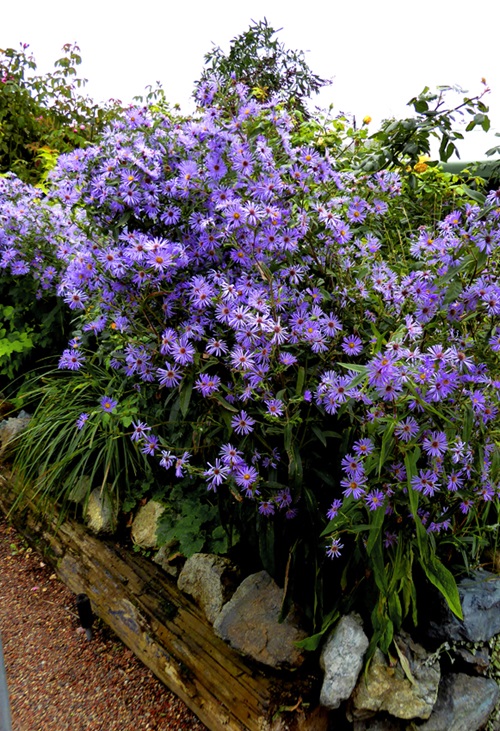
Botanical Name: Symphyotrichum laeve
This plant, with blue and lavender flowers, continues to bloom till late fall. Its color and hardiness make it an ideal companion for Pink Muhly Grass.
8. Coneflower
Botanical Name: Echinacea
Coneflowers attract beneficial pollinators like butterflies and bees, enhancing the ecological balance around Pink Muhly Grass.
9. Petunia
Botanical Name: Petunia
Popular for their vibrant colors and pleasant mild scent, petunias attract bees and other helpful pollinators, adding to the biodiversity near Pink Muhly Grass.
10. Sneezeweed
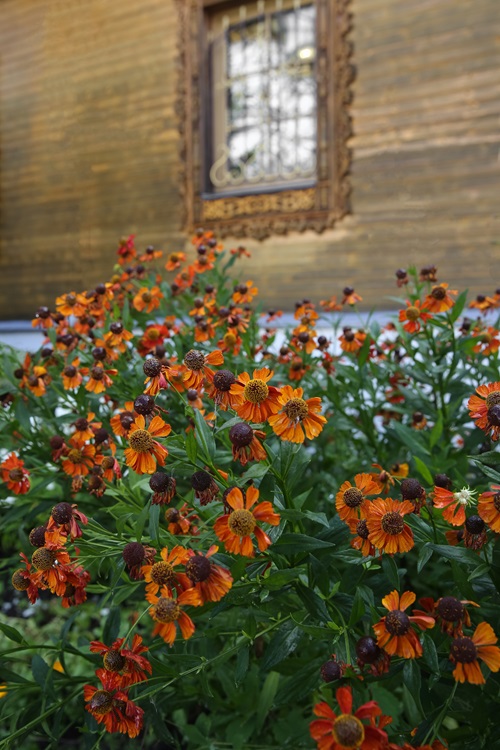
Botanical Name: Helenium autumnale
Named for its historical use in snuff (a type of smokeless tobacco), Sneezeweed’s yellow, daisy-like flowers complement Pink Muhly Grass’s pink plumes.
11. Aster
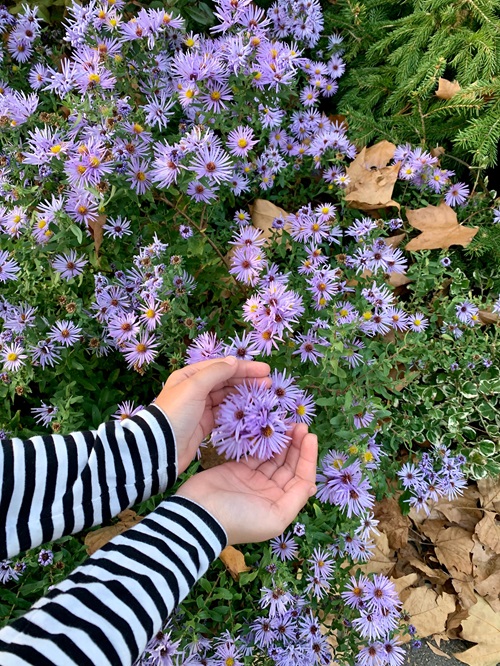
Botanical Name: Asteraceae
This flower is a great companion for the grass, thanks to its ability to attract beneficial insects, helping to prevent pests, and will give your space a wild look!
12. Black-Eyed Susan
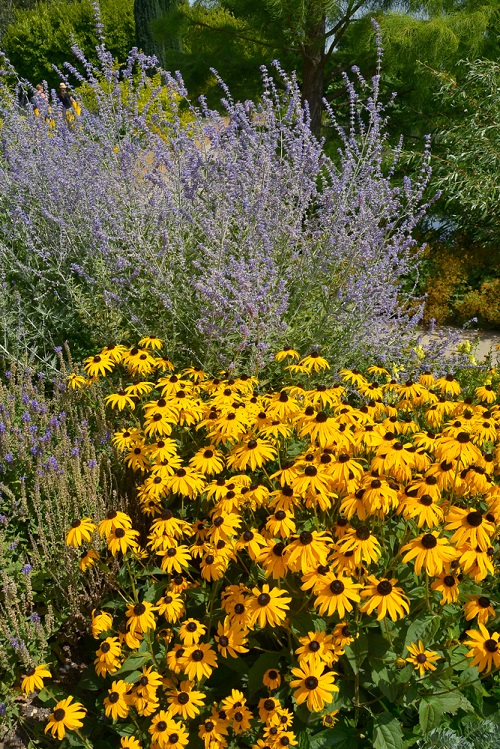
Botanical Name: Rudbeckia hirta
This plant features bright yellow, daisy-like flowers with a dark center. It thrives in full sun, just like Pink Muhly Grass. Both plants enjoy similar growing conditions, too.
13. Verbena
Botanical Name: Verbena
Verbena works well alongside Pink Muhly Grass, requiring minimal nutrients and moisture, thus not competing with the grass for resources. It is worth adding!
14. Heliopsis
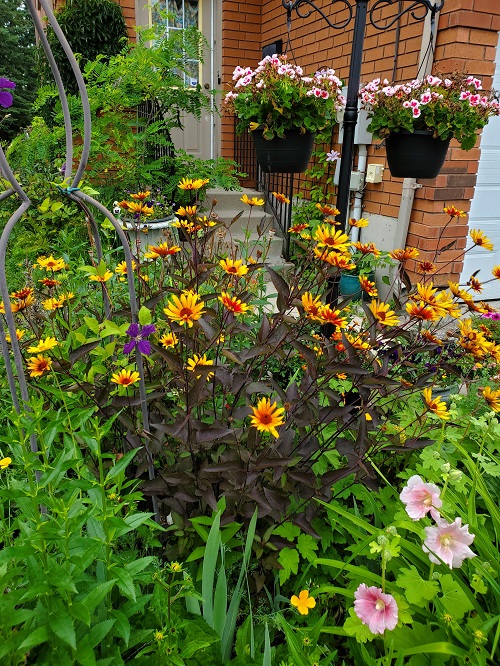
Botanical Name: Heliopsis
Ideal for borders, Heliopsis attracts beneficial insects like bees and butterflies and shares similar drought-tolerant properties with this ornamental grass.
15. Switchgrass
Botanical Name: Panicum virgatum
Adding switchgrass to your area will create a mixed grass display for texture variation. It’s also very easy to maintain both of these as they need similar environmental conditions.
16. Yarrow
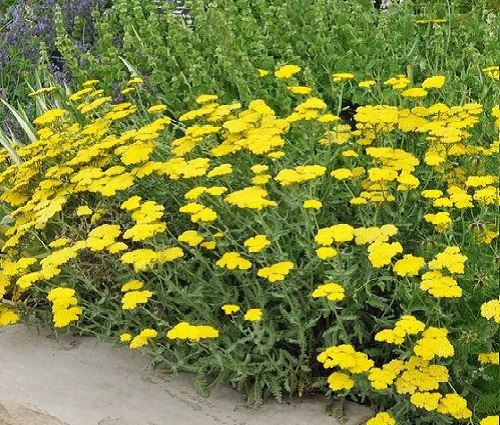
Botanical Name: Achillea millefolium
Yarrow can be a great companion plant for many garden crops, including Pink Muhly Grass. It offers a pleasing texture with its flat flower heads and fern-like foliage.
17. Sage
Botanical Name: Salvia farinacea
It offers a stunning visual contrast with its blue blooms against Pink Muhly Grass.
16 Best Types of Sage Varieties to Grow in Your Garden
18. Agave
The pointy foliage of the agave will stand out with the plumes of the grass, making for a quirky display. They both do well in dry and arid climates.
Look at these amazing strawberry companion plants
Plants to Avoid Growing Near Pink Muhly Grass
- Vegetables: Tomato, corn, or cucumber are not suitable companions for Pink Muhly Grass as these crops need richer, more nutrient-dense soil that has a lot of moisture, making them incompatible neighbors.
- Fruits: Similar to vegetables, fruit plants (citrus or mango trees) generally require more water and fertilizer than Pink Muhly Grass can tolerate. Planting fruit plants nearby can overwhelm the grass with excessive nutrients and moisture.

